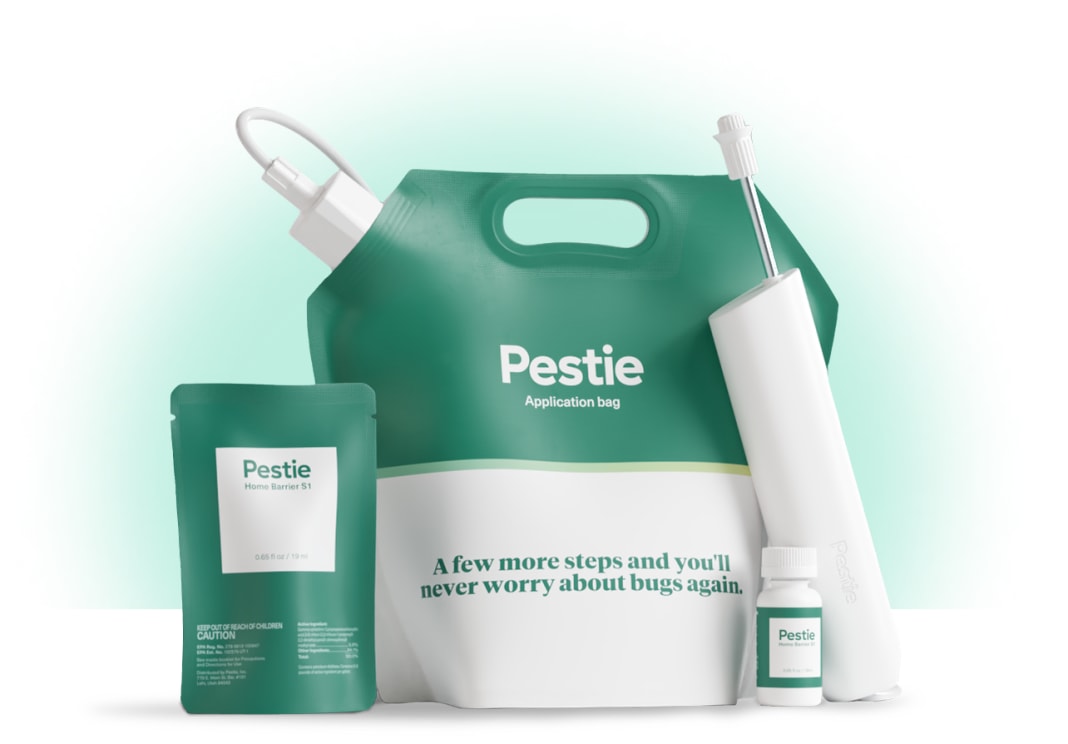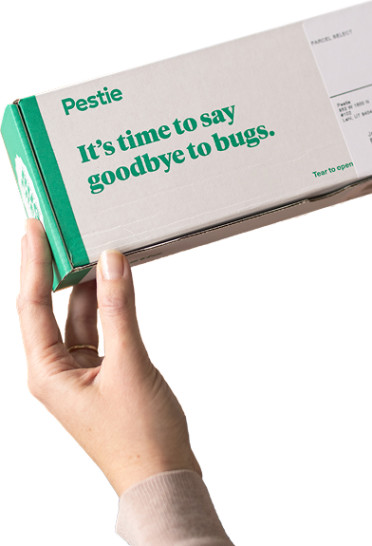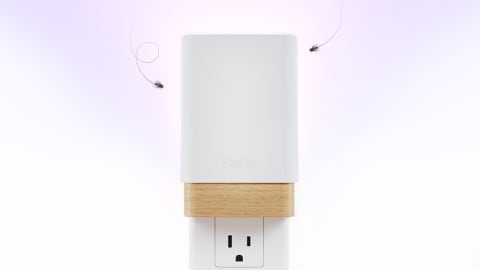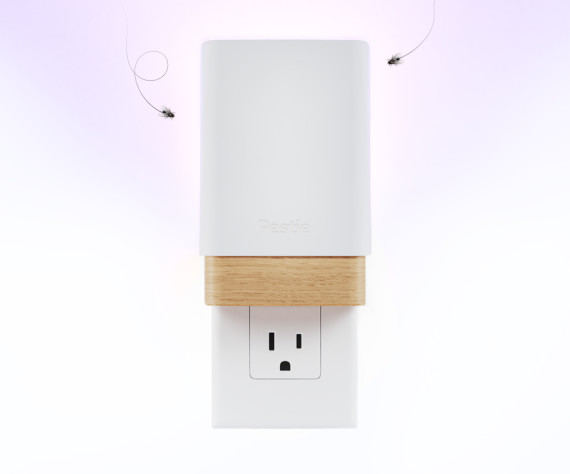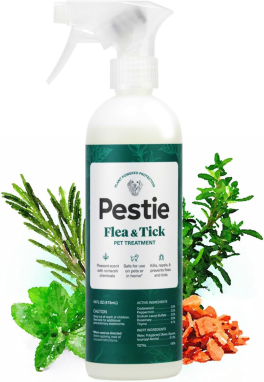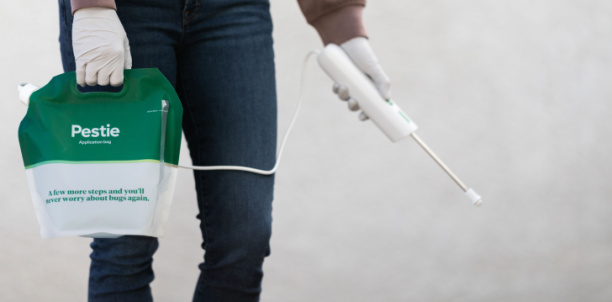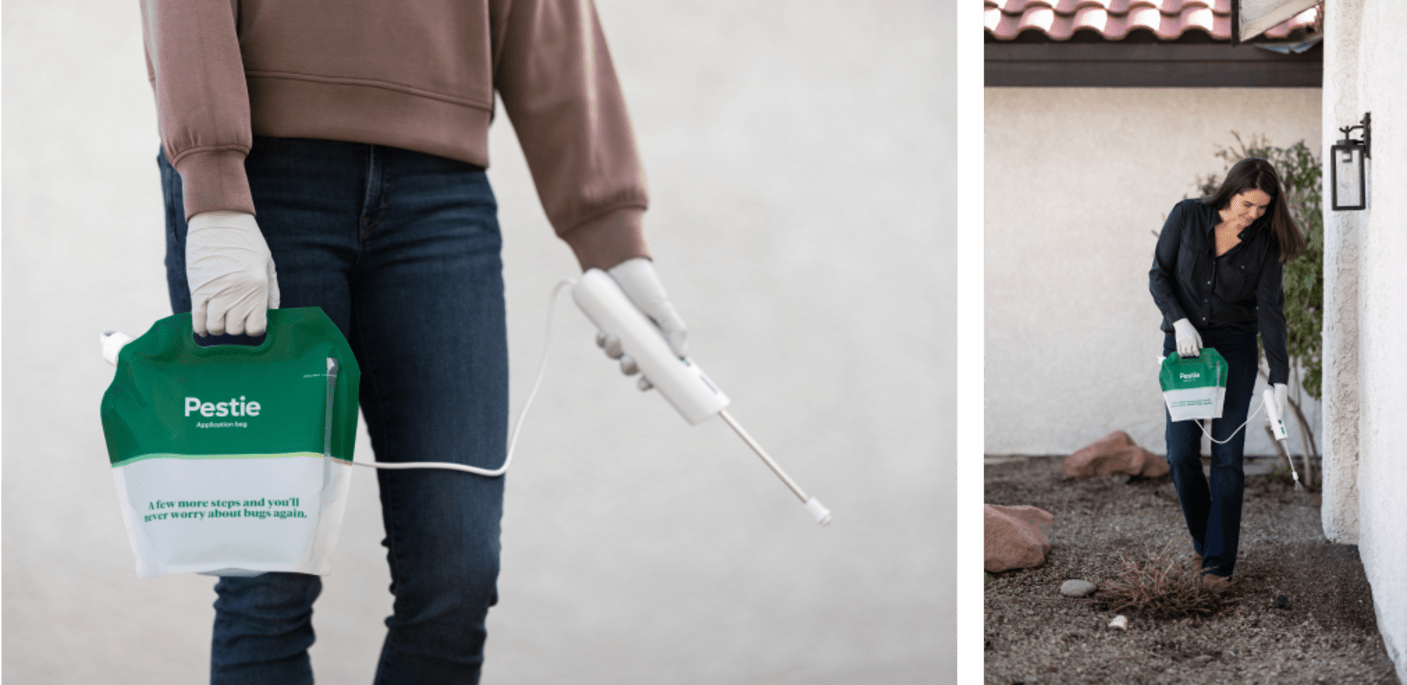How to identify and get rid of drugstore beetles
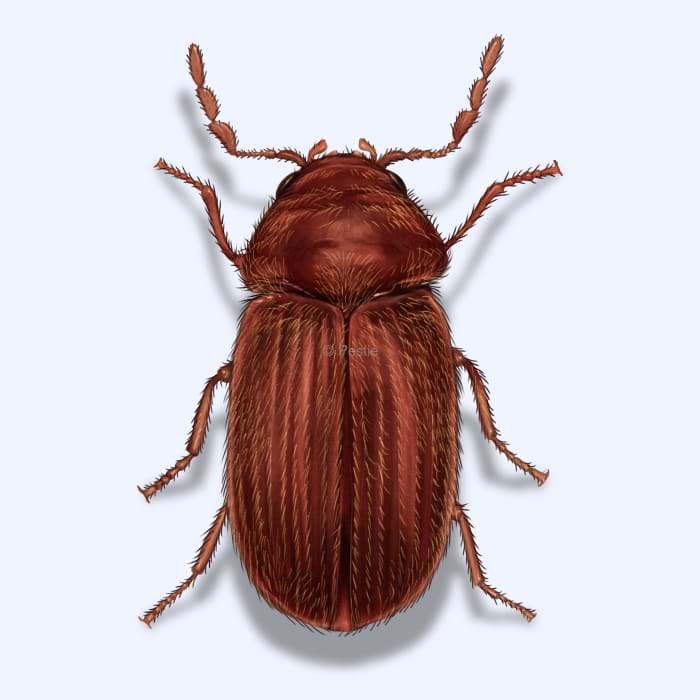
Drugstore beetles: robbing kitchens and pharmacies
When you open up your pantry, you usually don't expect tiny surprises crawling in your food. For small drugstore beetles, your pantry is a buffet of all their favorite foods. Whether in your flour, bread, beans, dog food, or powdered milk, they love making a mess of your stored products.
Drugstore beetles get their name from their capability to eat pharmaceutical and medicinal products, including some poisonous substances like belladonna and strychnine.
Females will lay their eggs in your foodstuff or non-edible substances, like books, leather, or fur. The eggs hatch into larvae, then eat and grow. They quickly make a mess of anything they infest. It has been said that drugstore beetles will eat "anything but cast iron."
However, not all is lost when it comes to controlling drugstore beetles. With a little prevention and foresight, you can keep your goods far away from these pests.
How to identify drugstore beetles
Drugstore beetles are small, reddish-brown insects that can be identified by their oval and cylindrical body shape. They also have antennae that end in a three-segmented club. With magnification, you can often see lines of fine hairs that run down the back of these beetles.
Spotting these beetles, along with finding small holes in packaged foods, books, or other materials, can indicate an infestation. Homeowners may also notice a fine powder near the source of their feeding.
How big are drugstore beetles?
Drugstore beetles are only 1/16 to 1/8 inch long.
What other beetles look like a drugstore beetle?
Drugstore beetles and cigarette beetles are nearly identical at first glance. However, the cigarette beetle has more segments in their antennae and a humpbacked appearance.
Where do drugstore beetles live?
They are found all over the United States, thriving in both warm and temperate climates. In homes, drugstore beetles are commonly found in pantries, kitchens, or where food and spices are stored.
How to get rid of drugstore beetles
Discovering a drugstore beetle infestation can seem overwhelming, but there are a few simple things you can do to prevent and remove them from your home:
- Clean pantries and shelves regularly to remove food particles.
- Store food in tightly sealed containers.
- Dispose of infested products immediately.
- Use pheromone traps to monitor and capture adult beetles.
Sanitation and proper storage are the best things you can do, but inspecting products like cereals, flour, birdseed, or dry pet food can help, too. Look for shotgun holes in the food or packaging.
Treat drugstore beetles with Pestie
If you're still having trouble keeping drugstore beetles away, the best option is to use a pro-grade, effective pest control solution like Pestie.
Pestie is a do-it-yourself pest control solution that's specially designed to keep drugstore beetles and other pests away from your home.
With Pestie, you can rest easy knowing that your living space is protected and free of creepy crawlies. And the best part? It's designed for people, pets, and the planet, so you can say goodbye to harsh chemicals and hello to peace of mind!
- Save hundreds compared to traditional annual pest plans
- People, pet, and planet-friendly
- Pro-grade customized formulas
Quick facts
- Scientific name
Stegobium Paniceum
- Other common names
Biscuit Beetles
- Colors
Light to dark brown
- Life span
4-7 months, but multiple generations can occur in one year
- Diet
Stored food products, spices, paper products, fur, leather, medicine
How dangerous are Drugstore Beetles?
Low danger risk
Drugstore beetles are not directly harmful to humans but can contaminate food and damage household items.
Drugstore beetles carry a symbiotic yeast with them that helps produce vitamin B. The yeast gets passed along with the egg. The larvae consume the yeast, which helps them eat and survive on many non-food sources.
